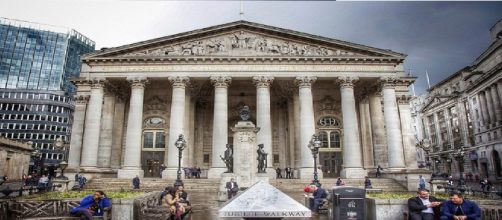A chief economist has said the economy will boom once Britain leaves the European Union, despite the Bank of England's concerns about policing the City post-Brexit.
Richard Jeffrey said there will be a surge in investment after Brexit by businesses seeking to expand their UK activities without recruiting EU workers. According to Mr. Jeffrey, this will reinvigorate the British economy.
Despite this, the Deputy Governor of the Bank of England, Sam Woods, has said the Bank's regulatory wing, the Prudential Regulation Authority (PRA), faced a threat to its main objective, which is to ensure there is financial stability as Britain prepares to leave the EU.
A very positive change
But Mr. Jeffrey, who works for a London-based wealth management services provider called Cazenove Capital, said Brexit would be a very positive change for the UK. He told Bloomsberg that investment would have a substantial effect on the economy as it would lead to an increase in productivity.
He acknowledged Brexit will inevitably make it harder for Britain to access the European labour pool. Refuting claims that leaving the EU will make it particularly difficult to recruit new workers, he said that does not mean the UK will have no access to it. The chief economist said this could be a positive change for the economy as organisations seek to employ more British workers.
Recent data has suggested economic growth may be stronger than many economists predicted, which has been driven by the services sector. Next is witnessing its sales figures growing again and small and medium-sized manufacturers are experiencing considerable growth.
Despite GDP figures expanding by 0.3 per cent in the second quarter, the Bank of England downgraded its growth forecasts for 2017 and 2018.
Other experts have highlighted a move towards expanding growth, as buoyant results from British firms like BP, HSBC, the Royal Bank of Scotland, BAE Systems and Rolls-Royce enlarged the FTSE 100 index.
The Bank of England fears it may face an extra burden
However, the Bank of England fears it may face an extra burden if it had to regulate more businesses as they prepare for Brexit.
Writing to Conservative MP Nicky Morgan, the new head of the Treasury Select Committee, Mr. Woods said handling Britain's EU exit is his number one priority.
He also pledged his support for Chancellor Philip Hammond's plans for a transitional deal after the UK leaves the trading bloc on March 2019. The Deputy Governor said he fears the cost to businesses in Britain and the EU could rise if there is no implementation deal.
Mr. Woods said there is a high probability of a disruption to trade and the chance of higher debt charges if Brexit impacts upon banks' activities.
Ms Morgan wrote to the Deputy Governor last month to request details of London's readiness for a 'hard' Brexit. In his reply, he said he was examining the plans of 401 City businesses to ensure they each had contingency plans.
Some of them have already clarified how they intend to cope in the event of a 'no deal' scenario. For example, RBS has said it is expanding into Amsterdam, Barclays and the Bank of America are relocating staff to Dublin and Morgan Stanley has selected Frankfurt.
Brexit will be a complex task
Writing to Mrs Morgan, Mr. Woods said Brexit will be a complex task because companies will become increasingly difficult to regulate as they restructure their contracts to cope with the UK's EU exit. The Bank may have to regulate more firms if there is no agreement on passporting, whereby insurance companies and banks residing in the trading bloc, Iceland, Lichtenstein and Norway are able to operate in Britain without the Bank's permission.
The PRA receives money from the businesses it monitors and has requested an extra £5.4 million to fund its annual requirement, which is estimated to be £267 million for this financial year. It has suggested that Brexit may result in its costs increasing sharply due to the risks associated with exiting the trading bloc.

